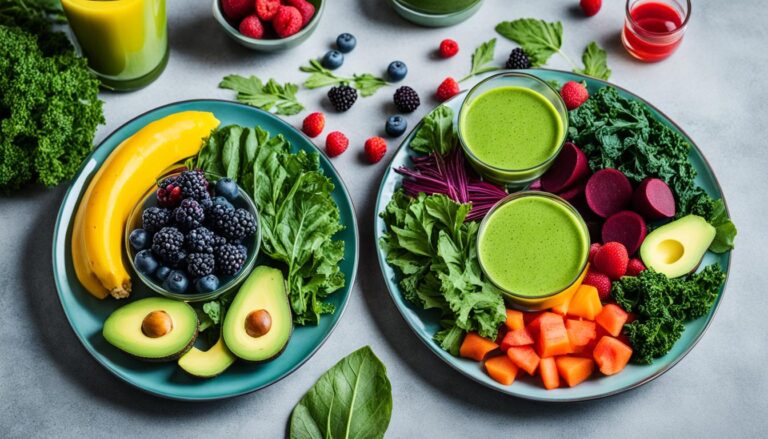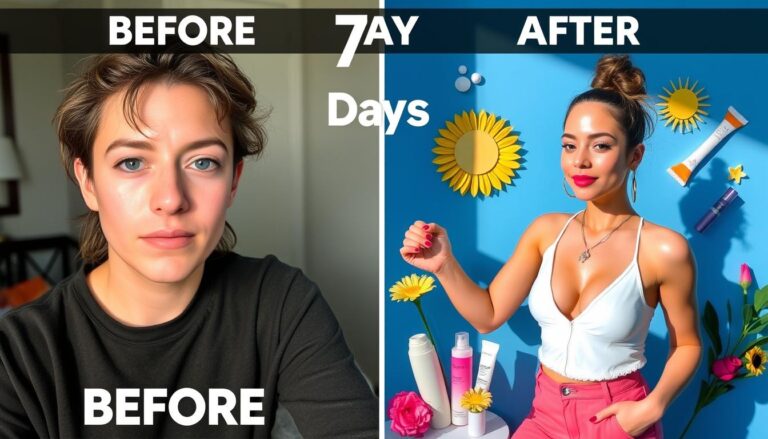What if the secret to lasting fat loss isn’t about finding the perfect diet? It’s about choosing a plan that fits your biology lifestyle and long term goals.
The search for the best diet for weight loss often leads to confusion. With over 1,000 diet books published every year and conflicting claims many find it hard to know what works.
Diets like the Mediterranean diet full of vegetables whole grains, and omega-3-rich fish, support fat loss and heart health. But 95% of people regain lost weight within a year when using restrictive quick fixes.
Science shows that sustainable fat loss needs more than just counting calories. The USDA suggests eating nutrient dense foods like lentils 9.02g protein/100g and skinless chicken breast 23.2g protein/100g. They also recommend 150 weekly minutes of moderate exercise.
Yet, only 22% of Americans meet these activity guidelines. The real key is finding a balance between good nutrition, making lifestyle changes, and getting medical advice that fits your needs.
Key Takeaways
- Effective fat loss diets focus on nutrient density not just cutting calories.
- Diets like Mediterranean and DASH highlight fiber rich veggies and lean proteins.
- Long term success comes from balancing nutrition exercise, and mental health.
- Setting SMART goals and getting professional help boosts success in fat loss plans.
- More than 70% of weight loss failures happen because people ignore their unique metabolic and lifestyle needs.
Understanding the Fundamentals of Effective Fat Loss
A good fat loss diet starts with knowing the difference between losing fat and losing weight. Losing weight means losing total body mass which can include muscle water or glycogen. Losing fat means cutting down on stored fat which needs a smart plan for energy balance and good nutrition.
The Science Behind Fat Loss vs. Weight Loss
Reducing fat tissue happens when you burn more energy than you take in over time. Studies show that eating whole foods like veggies, lean proteins, and whole grains helps keep your metabolism healthy and your muscles strong.
On the other hand, quick weight loss plans that cut calories too much can lead to weight gain because your metabolism slows down.
Caloric Deficit: The Non Negotiable Component
To lose fat, you need to eat fewer calories but it’s not just about the number. A good long term fat loss plan includes:
- Tracking calorie intake using apps or journals
- Choosing nutrient-dense foods like leafy greens and legumes
- Avoiding ultra processed items to prevent hormonal imbalances
Metabolic Adaptation: Why Quick Fixes Fail
Quick calorie cuts can make your body burn less energy at rest. Research shows that diets with big calorie deficits can lower leptin a hormone that helps control hunger, by up to 50%. This makes you hungrier and crave more. To avoid this, aim for a slow calorie cut of 10-20% below what you normally eat.
Sudden extreme diets disrupt metabolic flexibility making long term adherence impossible. Chawla et al. 2020
Effective fat loss combines science with lifestyle changes that work for the long haul. This approach keeps your body and mind healthy.
What’s the Best Diet for Long Term Fat Loss?
Choosing the best diet for weight loss depends on many things. It’s about your biology lifestyle and what you want to achieve. A healthy diet for fat loss must be something you can stick to for a long time. It also needs to consider your metabolism culture, and mind.

Success comes from finding a balance between eating right and enjoying what you eat. The Mayo Clinic Diet is a good example. It lets you eat all the fruits and veggies you want. It also helps you make small changes to your habits over time.
This approach is backed by research. It shows that being flexible is better than strict rules. It helps keep your muscle mass while you lose fat.
- Adherence: Diets high in fiber and protein help you feel full. This makes it easier to stick to them.
- Medical alignment: If you have health issues like diabetes or heart disease you need a diet that fits your needs.
- Lifestyle integration: If you’re always busy, a simple plan like WW’s points system might work better than counting carbs.
The most effective diets are those that fit into your life permanently notes the National Institute of Diabetes and Digestive and Kidney Diseases.
Diets like the Mediterranean or DASH are good examples. They are full of nutrients, low in processed foods, and can be tailored to you. Focusing on these aspects helps keep your metabolism healthy while you lose weight.
It’s also important to think about your mind. Things like stress eating or cultural food choices can affect your diet. A good diet should take these into account to last in the long run.
Comparing Popular Diet Approaches for Fat Loss Results
Choosing the right diet for losing weight means looking at science and what you like. Here we compare four proven ways to help you pick the best diet for losing fat.
| Approach | Key Features | Benefits | Limitations |
|---|---|---|---|
| Low-Carb/Keto | Carb restriction, high fat | Rapid weight loss appetite control | Potential nutrient gaps |
| Mediterranean | Whole foods, olive oil, fish | Sustainability, heart health | Meal planning demands |
| Plant-Based | No animal products | Reduced chronic disease risk | Protein sourcing challenges |
| Intermittent Fasting | Time-restricted eating | Metabolic benefits | Possible energy fluctuations |
Low-Carb and Ketogenic Diets: Benefits and Limitations
Low-carb diets, like keto make your body burn fat for energy. This can help you feel full and lose weight quickly. But, they might not be good for your heart in the long run. Make sure to eat enough fiber and vitamins to stay healthy.
Mediterranean Diet: Balancing Nutrition and Sustainability
The Mediterranean diet focuses on olive oil, fish, and veggies. It’s great for your heart and helps with weight loss. It’s easy to stick to for a long time but you might need to plan your meals. It’s also good for your overall health like the DASH and WeightWatchers diets.
Plant Based Diets Impact on Body Composition
Plant-based diets can lower your risk of diabetes and high cholesterol. They help keep your muscles strong by eating enough protein from plants. Just make sure to plan well to avoid missing out on important nutrients.
Intermittent Fasting: Scheduling for Success
Methods like 16:8 fasting can improve your insulin sensitivity and metabolism. They’re also good for your brain and can help you live longer. Always talk to a doctor before starting but it’s safe for most people.
Using these diets with exercise and tracking your progress can lead to better results. Pick a diet that fits your life and health goals for lasting success.
Macronutrient Balance Finding Your Optimal Ratio
For effective healthy diet for fat loss, balance protein, carbs, and fats. This balance keeps energy up and muscle mass intact. A long term fat loss plan must fit your metabolism activity, and health goals. Studies show protein helps keep muscle when calories are low.

Read more: Top Vitamin B1 Food Sources for a Healthy Diet
Choose high-quality protein sources like poultry, fish, and legumes. Research from McMaster University found a 5:3.5:1.5 carb-to-protein to-fat ratio. This ratio led to 10.5lb fat loss while keeping muscle.
- Protein: 25-35% of calories 1.2–2g/kg body weight to support muscle repair.
- Carbohydrates: 45-65% from complex sources oats quinoa to fuel workouts and brain function.
- Fats: 15-30% from unsaturated fats (avocados, nuts) for hormone regulation and satiety.
| Ratio Type | Carbs % | Protein % | Fats % | Example Meal |
|---|---|---|---|---|
| High Protein | 30 | 40 | 30 | Grilled chicken + broccoli + olive oil |
| Moderate-Carb | 45 | 30 | 25 | Salmon + sweet potato + spinach |
| Low Carb | 20 | 35 | 45 | Steak + asparagus + avocado |
Everyone’s body is different, thanks to genetics and activity. Focus on whole foods for better nutrition. Use body composition metrics not just weight to track progress. A registered dietitian can help fine-tune your ratios for the best results.
The Psychology of Sustainable Eating Habits
A sustainable healthy diet for fat loss needs to tackle psychological barriers. It’s important to practice mindfulness and manage emotional triggers. Research shows 74% of U.S. consumers look for affordable options but many find it hard to meet nutritional needs. Here are some strategies to help you stay on track.
Mindful Eating Practices for Long-Term Success
Start with these mindful habits:
- Pause before meals to check your hunger level on a 1-10 scale.
- Turn off screens while eating to focus on your food.
- Use smaller plates to control your portions better.
| Approach | Mindful Eating | Restrictive Diets |
|---|---|---|
| Focus | Body awareness | Calorie counting |
| Sustainability | Long-term adaptability | Short term compliance |
| Health Outcomes | Improved digestion, stable energy | Metabolic slowdown, cravings |
Overcoming Emotional Eating Patterns
Emotional eating affects 60% of people. Here’s how to fight it:
- Keep a journal to find out what triggers your eating.
- Choose activities like walking or deep breathing instead of eating.
- Consider counseling if emotional eating persists.
Building a Healthy Relationship with Food
A balanced approach is key. Over 50% of Gen Z is confused about healthy eating, but diets rich in whole foods like legumes and vegetables work better. Don’t label foods as good or bad. This mindset can lead to guilt. Focus on:
- Regular meal times to avoid extreme hunger
- Meal prep to make better choices
- Weekly dietitian check-ins for tailored advice
The best diet for weight loss meets your mental and physical needs. Sustainable change takes time and self compassion, not quick fixes. Success comes when you combine psychological strategies with good nutrition.
Designing Your Personalized Fat Loss Nutrition Plan
Creating a fat loss diet that fits your body and lifestyle is key to success. First, figure out your metabolic rate. This shows how many calories you burn when you’re not moving. A good long-term fat loss plan meets your specific needs, like how active you are and your health history.
Set yourself a weight loss target by working out your body mass index BMI. Tracking progress beyond the scale includes energy levels, sleep quality, and exercise performance.
Here are the first steps:
- Use online tools or see a dietitian to find your basal metabolic rate BMR.
- Make a calorie deficit of 15-20% to avoid slowing down your metabolism.
- Include 1g of protein for every pound of your body weight to keep muscle while losing fat.

When planning meals focus on nutrient-dense foods. Here are some good choices:
- Quick Honey Mustard Chicken Meal Prep: 280 calories, 35g protein great for protein.
- Roasted Veggies & Egg Scramble: 260 calories with healthy fats and fiber for fullness.
- Healthy Red Beans & Brown Rice Medley: 380 calories, a plant-based option with complex carbs.
Adjust your carb intake around workouts. Choose slow burning carbs like oatmeal or quinoa. If you’re over 40 slowly cut calories to match your metabolism’s slowdown. Women with thyroid issues might need to eat fewer carbs under doctor’s advice.
Check your progress every week. If you hit a plateau tweak your portions by 100-200 calories. Add resistance training to keep muscle and boost your metabolism. Always talk to a doctor before changing your diet or meds.
Common Pitfalls That Sabotage Long Term Fat Loss
A successful long-term fat loss plan means avoiding common mistakes. These mistakes can stop your progress, even if you try hard. Studies reveal that 95% of people regain weight within five years because of these issues.
- Crash diets: Eating too few calories less than 1,200 kcal/day slows down your metabolism. This makes it hard to keep weight off. Experts suggest losing weight by eating 500 kcal less each day for lasting results.
- Skip meals: Skipping meals can mess with your hunger hormones. This can lead to eating too much. Eating breakfast helps keep blood sugar levels stable, unlike skipping it.
- Liquid calories: Drinks with sugar, like smoothies and juice, add up to 15% of daily calories for many Americans. It’s important to keep track of these calories to stay on track.
- Unrealistic goals: Setting goals to lose too much weight too fast can lead to giving up. The National Institute of Health suggests losing 0.5–1% of body weight each week for better results.
- Nutrient deficiencies: Some diets lack important nutrients like calcium or protein. A healthy diet for fat loss should include at least 25g of protein at each meal to keep muscle mass.
- Sleep deprivation: Not getting enough sleep (less than 7 hours) lowers leptin levels, making you hungrier. Getting 7–9 hours of sleep helps your body burn fat better.
Behavioral strategies are just as important as what you eat. Using apps like MyFitnessPal to track food can improve sticking to your diet by 40%. Combining a Mediterranean diet with stress-reducing activities like yoga or mindfulness can help control cravings.
It’s also key to avoid extreme thinking and plan for social events to prevent relapse. Success in losing weight comes from a holistic approach not just counting calories.
Supporting Nutrition Lifestyle Factors for Enhanced Fat Loss
Getting rid of fat is more than just picking the right diet. Sleep managing stress, and exercise play big roles too. Together they help keep healthy habits going.

Sleep Quality and Its Impact on Fat Loss
Not getting enough sleep messes with hunger hormones. Try for 7-9 hours each night. It helps keep your metabolism working right.
Bad sleep can lead to more body fat and trouble with blood sugar. This makes losing fat harder.
Stress Management Techniques
Stress makes your body hold onto belly fat. Mindfulness meditation can help control food cravings. A 2020 study showed yoga can boost fat loss by 22%.
Strategic Exercise to Complement Your Diet
Working out makes your body burn fat better. Lifting weights for 4 weeks can cut body fat by 1.46%. Mix in HIIT and strength training twice a week for best results.
The NHS suggests 150 minutes of moderate activity a week. Break it into 10-minute bits for easier tracking.
| Lifestyle Factor | Impact | Action Steps |
|---|---|---|
| Sleep | Regulates appetite hormones | Stick to consistent bedtime/wake times |
| Exercise | Boosts metabolic rate | Incorporate 2x weekly resistance training |
| Stress Management | Reduces cortisol levels | Practice 10-minute daily deep breathing |
How to Track Progress Beyond the Scale
Tracking fat loss means looking at more than just weight. A healthy diet for fat loss and regular measurements give a full picture. Here are ways to see progress that go beyond just numbers.
Body Composition Measurements
Accurate assessments need the right tools. Here are some:
- Bioelectrical impedance (BIA) for at-home tracking
- DEXA scans for precise fat/muscle analysis
- Caliper testing for specific body fat percentage
- Waist/hip circumference measurements
Non scale victories like increased energy and better sleep are valid indicators of progress.
Performance and Energy Level Indicators
| Marker | Significance |
|---|---|
| Strength gains | Additional 5-10% weight lifted |
| Endurance | Increased exercise duration by 15-20% |
| Sleep quality | Consistent 7-9 hour sleep cycles |
| Cognitive clarity | Reported improvements in focus and decision-making |
Sustainable Habit Formation Benchmarks
Track changes in behavior with these goals:
- Consistent meal planning adherence
- Hydration consistency (≥3L daily)
- Regular sleep schedule consistency
- Weekly physical activity tracking
Keep a progress journal to note weekly changes. Combining these metrics with a fat loss diet helps meet long term health goals. Focus on how clothes fit energy levels and daily tasks not just the scale.
Conclusion Creating Your Sustainable Fat Loss Journey
For lasting fat loss mix a healthy diet with habits that fit you. Focus on whole foods control your portions and balance your macronutrients. Small, steady changes like SMART goals are key to success.
Start with small goals, like jogging for 30 minutes three times a week. This makes progress feel achievable. For a personalized plan talk to a registered dietitian or healthcare provider. They can help with diets like the 5 Net Carb Model or Mediterranean diet.
These diets focus on whole foods and keeping your metabolism balanced. Adding resistance training to your diet helps keep your metabolism up and your muscles strong. Don’t get discouraged by setbacks. Instead adjust your goals slowly to keep moving forward.
Good sleep, managing stress, and eating mindfully also help. Use apps and join communities to track your progress and stay motivated. Remember lasting fat loss is about building habits for life not quick fixes. By combining science-backed nutrition with lifestyle changes you can achieve results that fit your body and preferences.
FAQ
What is the best diet for fat loss?
The best diet for losing fat is one that fits your personal taste and nutritional needs. It should be easy to stick to and backed by science. It involves eating fewer calories and enough protein, balancing all nutrients.
How does caloric intake affect fat loss?
To lose fat, you need to burn more calories than you eat. But, it’s not just about the number of calories. The quality of what you eat also matters for your health and body shape.
What are the common pitfalls of fat loss diets?
Many people make mistakes like eating too few calories or not enough protein. They also follow diets that are hard to keep up with and forget about important nutrients. Emotional eating can also set them back.
How important is macronutrient balance for fat loss?
Getting the right mix of nutrients is key for losing fat. Eating enough protein helps keep muscle mass. The quality of carbs and fats affects how full you feel and your overall health.
What psychological strategies can support diet adherence?
Mindful eating helps you understand when you’re hungry or full. Dealing with emotional eating can also help. Having a positive mindset towards food is essential for lasting success.
How can I personalize my fat loss nutrition plan?
Tailoring your diet plan means looking at your metabolism, activity level, and health. Working with a registered dietitian can help. They consider your lifestyle to create a plan that works for you.
What role does sleep play in fat loss?
Good sleep is vital for losing fat. Poor sleep can make you hungrier and crave more food. Better sleep can help you lose fat and feel healthier overall.
How can I effectively track my fat loss progress?
You can track your progress in many ways not just by weighing yourself. Look at body composition how well you perform, and your eating habits. This gives a fuller picture of your success.





